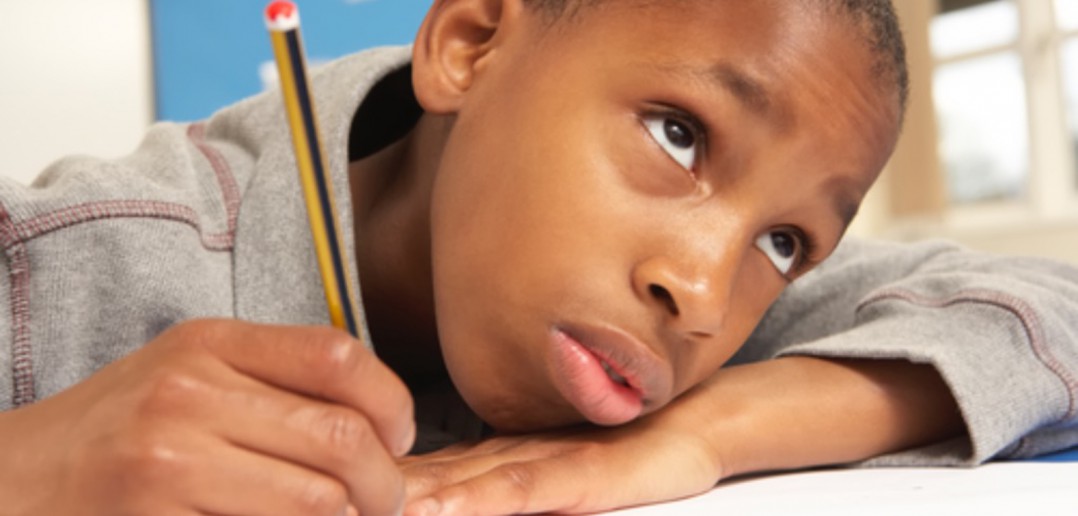
by PRIDE Reading Program Admin | Feb 17, 2017 | A PRIDE Post, Phonological Awareness
Learning to read is a gradual and sequential process that is developed with explicit instruction and exposure. In the late preschool years, children begin the reading process by listening to stories and chanting nursery rhymes so that they can hear the similarities and differences in the sounds of words. Through this process, the children begin to manipulate and understand sounds in spoken language and proceed by taking the next step of making up rhymes and words on their own.
As the children get older, they begin to learn the names of the letters in the alphabet and the different sounds each letter represents. Subsequently, they begin to write the letters and numbers that they already recognize by their shapes. Finally, the children associate the letters of the alphabet with the sounds of the words they use when they speak. At this point, they are on their way to learning to read!
The key to the entire reading process is phonological awareness. This is where a child identifies the different sounds that make words and associates these sounds with written words. A child cannot learn to read without this skill. In order to learn to read, children must be aware of phonemes. A phoneme is the smallest functional unit of sound. For example, the word ‘bench’ contains 4 different phonemes. They are ‘b’ ‘e’ ‘n’ and ‘ch.’
Some examples of phonological awareness tasks include:
1. Identifying rhymes – “Tell me all of the words you know that rhyme with the word BAT.”
2. Segmenting words into smaller units, such as syllables and sounds, by counting them. “How many sounds do you hear in the word CAKE?”
3. Blending separated sounds into words – “What word would we have if we blended these sounds together: /h/ /a/ /t/?”
4. Manipulating sounds in words by adding, deleting or substituting – “In the word LAND, change the /L/ to /B/.” “What word is left if you take the /H/ away from the word HAT?”
Through phonological awareness, children learn to associate sounds and create links to word recognition and decoding skills necessary for reading. Research clearly shows that phoneme awareness performance is a strong predictor of long- term reading and spelling success. In fact, according to the International Reading Association, phonemic awareness abilities in kindergarten (or in that age range) appear to be the best single predictor of successful reading acquisition.
Learn more about the New PRIDE Reading Program
_________________________________________________________________________________________________
Karina Richland is the Founder and Director of Pride Learning Centers, located in Los Angeles and Orange County. Ms. Richland is a certified reading and learning disability specialist. Ms. Richland speaks frequently to parents, teachers, and professionals on learning differences, and writes for several journals and publications. You can visit the PRIDE Learning Center website at: www.pridelearningcenter.com

by PRIDE Reading Program Admin | Feb 6, 2017 | A PRIDE Post, Articles & Resources
Parents teach their children lessons every day. Parents of children with special needs often feel like there are even more lessons that their children need to learn because they face special challenges. These parents sometimes feel overwhelmed and unsure of where to begin teaching their children, which makes it difficult to choose an education path for them. Any lesson that is suited to a child’s ability and engages him is appropriate for a parent to teach, and we share a few of our favorites here.
- The Importance of Organization
Organizational skills are important for kids with special needs not only because they need to be able to access their belongings but because they need to keep orderly thoughts so they can retrieve their knowledge and use it effectively. Children who lack organizational skills struggle when it comes to handling information logically and effectively; the result is they face challenges when they have to set priorities, make plans, and see a task through to completion.
Parents can help kids build organizational skills in several ways. For example, creating a family calendar where parents and children keep track of tasks and plans is one way to teach the importance of having a schedule and meeting deadlines. Assigning chores that involve sorting and categorizing is another way to boost your child’s organizational skills. Guide your child through sorting and folding clothing or using containers and bins to keep toys and belongings in their designated spaces.
- To Take Pride in Being Independent
Kids with special needs should be as independent as possible. Independence gives the kids a solid foundation on which to build confidence and prepare for a future without parents and siblings being available to help them at every turn. As with any child, your child with special needs should be given the opportunity to reach his potential.
There are a few strategies you can use to support your child’s independence and show him to take pride in achieving it. First, give your child as many choices as possible. Help him understand the importance of transitions. Guide your child through setting realistic education and career expectations and make sure the educators and other caregivers are well aware of his goals and support them.
- To Ask for Help When It Is Needed
Of course, your child with special needs also needs to learn to ask for help when he needs it. Independence is critical to his happiness and success, but so is understanding that there is nothing to be ashamed of when he does need help. Children with special needs often remain silent when they need help the most, so showing them how to ask questions is vital to their success, safety, and independence.
Adults often assume kids who don’t ask for help are doing well when, in reality, the opposite is often true. You may want to meet with a teacher to come up with strategies for how your child will ask questions. Kids with dyslexia especially need to know when to ask for help in the classroom. For example, when he is reading, he may place an index card on his desk to signal the teacher he needs help during quiet work time.
Help kids identify when they have a problem and when they need help. Work through knowing the difference between problems and needing help, and between needing help and wanting help. Walk kids through who can help them and when, and how to communicate with those people when they need help.
- To Stand Up for Themselves
Teaching your child with special needs how to stand up for himself boils down to teaching him to self-advocate. Work with your child to align his actions to his feelings and to have a strong set of values so he is trustworthy. It’s also important to model with your child so he understands how to be assertive rather than aggressive. Teach your child to respect himself and others and to create healthy relationships with others.
One of the best ways to teach your child these self-advocate concepts is to model them through various play-acting scenarios. Create situations for practice at home and work with your child until he feels comfortable to handle the situations on his own at school and in other settings.
Children with special needs can learn life lessons and critical skills from their parents at home. Parents should consider their goals for their child and use engaging activities to help them grasp concepts and reach those goals.
Learn more about the New PRIDE Reading Program
________________________________________________________________________
Jenny Wise is passionate about giving her children the best education possible, and by doing so from home. She put up specialhomeeducator.com to help her fellow parents who are just starting out with homeschooling.

by PRIDE Reading Program Admin | Jan 26, 2017 | A PRIDE Post, Auditory Processing Disorder
Children with auditory processing disorder will often struggle in a classroom setting, especially in the areas of following directions, reading, spelling, writing and comprehension. Auditory processing disorder results in a child mis-hearing, mis-pronouncing, and mis-repeating information. These children often have difficulty hearing the difference between sounds or words that are similar (coat/boat or sh/ch/. If you can’t hear the sounds properly, you can’t say the sounds properly you will also not read or write the sounds properly.
Here are some strategies for teachers and other professionals that work with children diagnosed with an auditory processing disorder in the classroom:
- Sit the child as close to the teacher as possible. Most children with auditory processing disorder will have difficulties hearing among other noises. If the child is sitting towards the back of the class he will only hear the sounds surrounding him – not the teacher’s voice. Therefore, just by moving the child nearer to the sound, at the front of the class will make a huge difference.
- Have the child look at the speaker. The child with auditory processing disorder needs to see the face and mouth of the speaker. Give the child as much eye contact as possible.
- Encourage all participants in the classroom to project their voices clearly. So many children have soft voices. When the teacher is asking questions and calling on students, the teacher can repeat the answer of the quieter voiced children so that everyone is able to hear and understand the answer. Not being able to hear is a lost opportunity for learning!
- Implement lots of visual images. Using visual stimuli when explaining will give the child with auditory discrimination problems lots of clues. These can include charts, pictures or illustrations. Teachers can use their own body language to serve as a visual. This could be hand movements or facial expressions. Think of ESL teachers and how they utilize TPR (total physical response).
- Praise the child often for being a good listener!
_______________________________________________________________________
Karina Richland is the Founder and Director of Pride Learning Centers, located in Los Angeles and Orange County. Ms. Richland is a certified reading and learning disability specialist. Ms. Richland speaks frequently to parents, teachers, and professionals on learning differences, and writes for several journals and publications. You can reach her by email at karina@pridelearningcenter.com or visit the Pride Learning Center website at: www.pridelearningcenter.com

by PRIDE Reading Program Admin | Jan 22, 2017 | A PRIDE Post, ADHD
If your child has difficulty paying attention in a way that adversely impacts his or her ability to learn, they may have ADHD. ADHD is often first suspected by attentive parents and teachers who notice these symptoms:
- Easily Distracted by Noises
- Difficulty Sitting Still
- Displays excessive excitement/protestation at changes in the routine
- Has difficulty transitioning from one task to another
- Leaves assignments incomplete
- Has difficulty coping with physical distress such as hunger, thirst, and mild bodily pains
These symptoms listed above are common symptoms that kids with ADHD may demonstrate in a school or home environment. A child with ADHD will experience these types of symptoms across environments, meaning their symptoms will not be confined to just occurring at home, or just occurring at school.
The following are suggestions for helping children with these types of symptoms to function more effectively and adaptively:
- Clear the child’s desk between assignments to minimize distractions and promote organization.
- When working on math problems, give the child one problem at a time, gradually increasing the amount to two or three at a time, rather than a full page of problems. Presenting many problems at once may overwhelm a child with attention problems.
- Limit choices in problem solving techniques to ones that the child has already demonstrated successfully, thereby teaching the child to rely on his or her strengths.
- Schedule breaks to allow the child to release pent up energy.
- Always make and maintain eye contact when giving simple, direct instructions. This promotes attentiveness.
- Provide incentives for completing assignments and also reward the ABSENCE of undesired behavior patterns. This creates an effective pattern of reinforcement.
- Let the child know what is expected of him/her when giving assignments, thus helping the child to focus on what is crucial to successfully completing the assignment.
- Make sure your child always understands the directions before beginning his or her work.
These suggestions can help a child with attention problems to function more effectively on in-class assignments as well as homework assignments. They can help manage the child’s difficulties, but do not represent successful treatment of their attention problems. In order to treat your child’s attention difficulties effectively, contact a mental health professional such as a clinical psychologist or psychiatrist to begin the assessment process to definitively determine an ADHD diagnosis. Correct assessment is crucial as many times a learning disability can appear to be ADHD, but their treatment options are actually vastly different.
Learn more about the New PRIDE Reading Program
______________________________________________________________________________________________________
Dr. Jared Maloff is a Licensed Clinical Psychologist working with adult, adolescent and child clients in Beverly Hills, CA. Dr. Maloff also conducts psychological testing for clinical, educational and forensic issues with both adults as well as children. This includes obtaining testing accommodations for standardized tests such as the SAT, LSAT, GMAT, Dental Boards, California State Bar Exam, and most others. Below is a listing of the diagnoses and symptoms that Dr. Maloff often treats in his clinical work:
ADHD, Adult ADHD, Asperger’s Disorder, Autism, Anxiety, Bereavement and Loss, Body Dysmorphia, Depression, Hypochondriasis, Learning Disabilities, Post Traumatic Stress Disorder, Problems with Motivation, Self Esteem Issues, Social Phobia, Somatization Disorders, Substance Abuse and Addiction, Trouble with Relationships. Learn more at www.beverlyhillspsychologist.com

by PRIDE Reading Program Admin | Jan 15, 2017 | A PRIDE Post, Learning Differences
One of the saddest aspects of the American elementary-high school educational system is that it fails to acknowledge the reality that we all learn differently. Students’ development is not always even, temperaments are different, and each child has their own learning style. While it is perfectly normal and all right to have learning differences and “glitches” (gaps between capabilities and performance) many educators ignore these variations and when they teach basic skills, there is little acknowledgement that information is processed differently.
In our current system this disrespect for a variety of learning styles can undermine the self-esteem of learners as young as those in kindergarten. Yes, even children this young compare themselves to their peers, seeing themselves as less successful then their classmates can make them feel “less then” and “stupid”. In reality, it is not that these students are less intelligent rather they may simply need to be taught the material in another way.
Some children prefer and learn better auditorally, others visually, and others need to manipulate objects and are tactile/kinesthetic learners. Knowledge and understanding the types of learning style your child uses and prefers early on can be the most valuable information for parents and educators. This information can make homework easier and learning in general less stressful and a lot of fun. It is also important to realize that the learning style a child uses in early elementary school might not lead to a successful approach later on. Learning to compensate and combine the different approaches and styles when your child is young can help prevent those possible struggles in the future.
The child that cannot subtract in second grade might become a PhD mathematician in the future if they understand they are not “stupid”, but that they might just need to approach the task differently and learn a different style. Just as important to understand is that the child who is the best reader in first grade, might not be able to comprehend what they read by the third grade.
Luckily, today professionals, parents and pupils have access to tools to evaluate, diagnose and then remediate teaching techniques to work with the variety of learning styles that students have, by administering comprehensive psychoeducational evaluations. When differences and glitches are observed they can be examined, diagnosed, and new strategies can be implemented to make learning a more successful and pleasant experience for the struggling student.
Learn more about the New PRIDE Reading Program
____________________________________________________________________
Dr. Abbe Barron, DMD, PhD is a clinical psychologist licensed in California. Dr. Barron (PSY21730) holds a number of professional degrees and has worked with children, adolescents and adults in a variety of settings throughout her private and professional life. She is a parent of exceptional children, a dentist and educator, and a clinical psychologist who conducts neuropsychological and psychoeducational assessments. Dr. Barron provides comprehensive psychological, educational and neuropsychological diagnostic services to children, adolescents, and young adults. Her specializations include testing for ADHD, learning disabilities, developmental disabilities, memory problems and psychological disorders. In addition, she provides school consultation (for both private and public schools), parent education, and classroom observations in order to improve classroom functioning. She attends IEP and school meetings providing diagnosis intervention, treatment planning and accommodations for school and standardized testing. Dr. Barron can be reached by email: abbebarron@gmail.com, Office: 310 476-7810, Fax: 310 476-7322.





